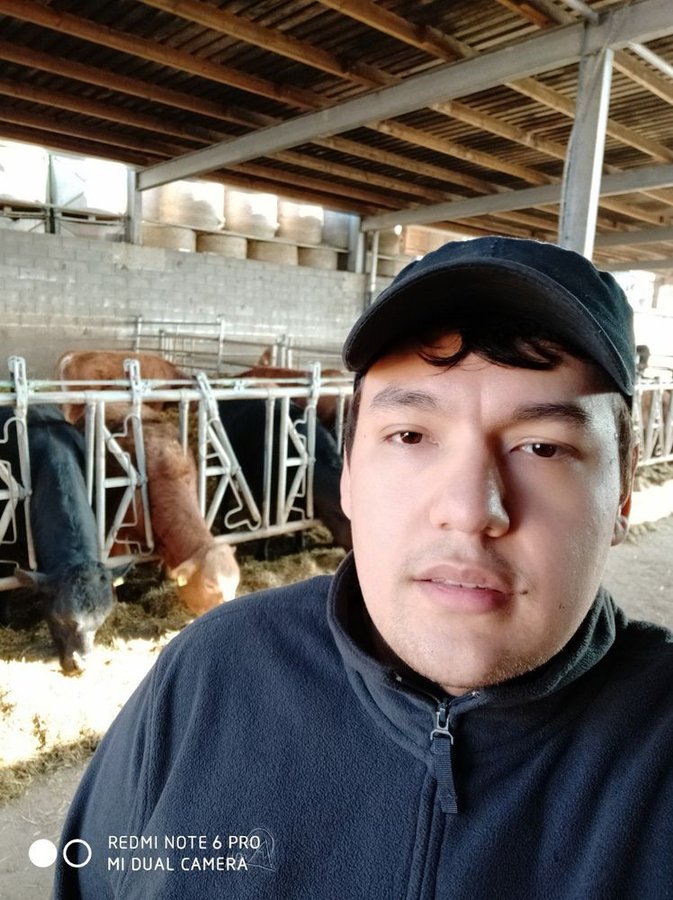Shavkatov Rasuljon, the 3rd year student of “Zootechnics” from Uzbekistan, is passing a six-month agricultural practice in ecological farms in Germany under the LOGO e.V. program.
The federal state of Rhineland-Palatinate, where our student is practicing, is located in the south-west of Germany. It is covered with dense forests. There are many castles and fortresses in it. The Palatinate Forest, located in the southern part of the land, covers an area of about 1800 km2 and is the largest forest in Germany. Rhineland-Palatinate is home to Germany’s largest wine region, Rheingessen. It is sunny and warm here, so not only grapes are grown here, but even figs and citrus trees. There are also the medium-high mountain ranges of the Eifel and Hunsrück. In the Hunsrück mountain range there is Erbeskopf Mount with a height of 816 meters, which is the highest mountain in the federal state. The largest lake in this region is Laakh Lake, located in one of the volcanic basins at an altitude of about 300 m above sea level.
The farm in which Rasuljon works is an organic farm named after Hofgut Sachsen Wagner, the main focus of which is animal husbandry with developed crop production. The farm has over 120 head of Aberdeen Angus and Wagyu cattle.
Representatives of the Aberdeen Angus breed confidently occupy the first lines in the popularity rating. This hornless breed belongs to the meat direction and is rather unpretentious to the conditions of detention. Breeding this productive and early maturing breed is a profitable business that allows you to get valuable “marble” meat.
Wagyu is the collective name for a group of cattle breeds bred in Japan: black Japanese, brown Japanese, Japanese hornless and Japanese shorthorn. Wagyu was bred only within this country, since such animals were considered a “national treasure” and were strictly protected from export by the Government of Japan. But now the breed is widespread not only in Japan, but also in Europe, Chile, New Zealand, Australia and the USA. It is calm and unpretentious breed, which has a marbling of meat and a high content of unsaturated fats in it. All over the world, such meat is considered delicious and expensive.
In addition to raising cattle, the farm has sown areas for sowing grain crops, corn, used as a green fertilizer, and rapeseed, from which oil is obtained. Also on the territory of the farm there is a production of fruit alcoholic beverages.
The farm pays great attention to the processing of manure into biogas, therefore the farm is an organic farm. The advantage of biogas energy is, first of all, environmental safety. Biogas installations for running-in manure solve the problem of emission of harmful substances, organic waste and gases into the environment, contribute to the transformation of a significant amount of waste into a valuable source of energy. These installations produce electric energy using manure obtained by methods of organic livestock and crop production, in which, as a secondary of the product, organic fertilizers are obtained, which are used to feed plants.
Rasuljon Shavkatov participates in all technological processes of growing, nursing, feeding and keeping cattle, performs mechanized soil cultivation for sowing grain crops, and also masters the basics of making manure.
Today, on April 27, for two more students of the agrarian faculty of KalmSU Alina Temirkulova and Salamat Kyrgyzbaev, the 1st year master’s students of the master’s program “Technology of livestock products production”, agricultural practice began in ecological farms in Germany under the LOGO Union program.

